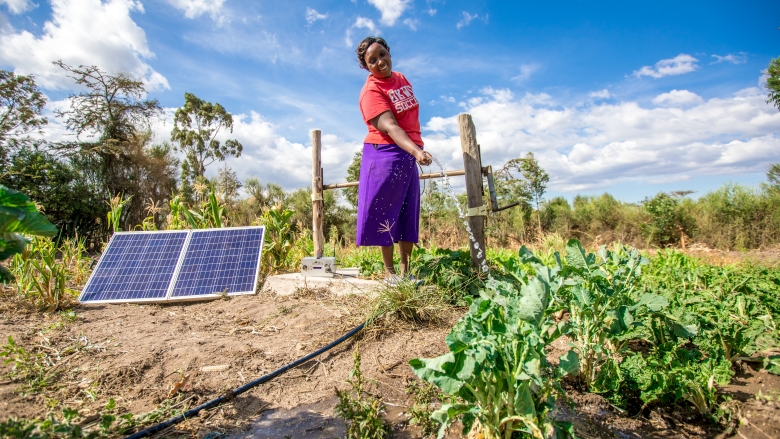The dry spell, which lasted about six months last year, greatly affected agricultural productivity in northern Uganda, which largely depends on rain-fed farming.
Food became scarce in most parts of the region, but for some people in Akura and Aloi sub-counties in Alebtong district, life continued as usual, after the Government put in place a small-scale irrigation scheme.
Owameri Small Scale Irrigation Scheme, located in Aloi sub-county, Alebtong district, was constructed by the Ministry of Water and Environment, through the Water for Production Regional Centre (WfPRC) – North.
The scheme is part of Ongom Citrus Irrigation Farm, which was established in the 1960s but was later vandalized. It had remained redundant for nearly four decades. Mercy Gwom, the chairperson of the scheme, said they started preparing the place in October last year, during the dry season.
She said they started with 500 members, but because of the intensity of the work, many deserted, leaving barely 380. Members were registered in groups of 20 to occupy the 21 plots. Each group was given an acre of land and they decide the type of enterprise to venture in. Members who were active realized a good harvest of watermelons, green pepper, eggplants, and onions.
However, the tomatoes were affected by bacterial wilt, Gwom said. Geoffrey Katongole, a sociologist with the water ministry attached to WfPRC-North, said the land was overused and degraded before the project was established.
“We are trying to improve it,” he said.
Katongole said they have advised the farmers to plant crops that are suitable in particular plots and avoid infected soil. Gwom said after realizing the benefits from the project, those who deserted wanted to rejoin, but it was too late for them. She said the project brought unity among the members.
Some members, after selling the produce, bought chicken and goats and used part of the money to pay school fees for their children in the first term of this year. Funding Gwom said the Government trained the farmers in better agronomic practices, gave them seeds, fertilizers, pesticides, and watering cans. It also helped them to prepare the seedbed, maintain the project infrastructure for one year and fence the project site from animals and intruders.
Challenges in the project Gwom said the land was infertile and part of it affected by bacterial wilt, which greatly compromised the yields.
She added: “During the rainy season, the members abandon the project to concentrate on their individual fields and are expected to resume work on the project site as the dry season approaches.”
Plans Gwom said they plan to establish a savings and credit co-operative society (SACCOS), where they can save their income and borrow money. The members also agreed to venture into catering services.
They plan to buy tents, chairs, and plates that can be hired for different functions.
